- Home
- Jason Pinter
The Darkness hp-5 Page 10
The Darkness hp-5 Read online
Page 10
A cab pulled up, and the doorman approached, leaning down to open the car door. A slender blonde in her forties slid out, thanked the doorman and went into the building.
The doorman watched her as she entered the building, holding his gaze just long enough for me to know that had she turned around, she wouldn’t have been pleased.
When the woman disappeared into the elevator, I approached.
“Afternoon,” I said.
The man nodded. “Can I ring someone for you, sir?” he replied.
“Not yet,” I said. “Is Mr. Kaiser home?”
“I haven’t seen him yet today.”
“Ah, let me guess, you’re on the eight a.m. to four p.m. shift. I guess that means Mr. Kaiser is up and at work early.” The doorman looked at me oddly.
“Sir?”
“No sweat, just making an observation. Name’s
Henry,” I said, extending my hand. The doorman hesitated. “I’m a reporter with the New York Gazette. ”
If he’d considered shaking my hand before, that idea was now gone.
“As I said, sir,” he replied, his voice much colder, “Mr.
Kaiser is not home at the moment.”
“I know, you mentioned that. I have to ask him a few questions.”
“Questions?”
I had to stop myself from smiling. Here’s the thing about New York City doormen: they love to talk. Your average doorman opens and closes a door for eight hours a day, but barely gets more than two words from their tenants. If you stop to chat, they’ll talk your ears blue. So few people actually talk to doormen, that if you gave them an inch they’d take eight miles.
And I was prepared to give this one a few feet.
“We’re investigating a… I can’t really talk about it yet.
But hopefully Mr. Kaiser can answer all our questions thoroughly. And I promise, you won’t be mentioned.”
“Why would I be mentioned?” he said, that voice thawing with concern.
“You won’t be,” I said. “If you knew anything about
Mr. Kaiser, anything suspicious, even something you thought one day and just dismissed, it would help his cause and ours. I’m looking for the truth, Mr…”
“Anderson,” the man said. “Donald Anderson.”
“Well, Donald…”
“You can call me Don.”
“Okay, Don. Thanks for being so agreeable.”
“Am I?”
“Are you what?”
“Being agreeable.” Don blinked as he spoke.
“Yeah, you are. So, are you friendly with Mr. Kaiser?”
“I mean, in so much as he doesn’t say much, I’ve never gotten any complaints from him.”
“No complaints. Any compliments?”
“He’s not what you’d call the most talkative guy,” Don said. “He tips over the holidays, kinda gives a little nod when he’s on his way out or back in. Other than that he don’t say much.”
“You ever try talking to him?”
“You ever work as a doorman?” Don asked.
“No, I haven’t.”
“Every tenant’s got a different personality. You got to learn how each person acts and reacts towards you, and tailor your personality towards that. I swear, my first few months on the job I felt like I was going crazy, developing one of those, whaddaya call ’ems, split personalities.
Mrs. Delahunt, she walks her dog like clockwork at seven-thirty in the morning. She always says, ‘Say hi,
Toodles!’ like she’s expecting the dog to talk to me. At first I couldn’t figure out why she treated me like such a, pardon my French, such a bitch. Then Charles, the evening doorman, told me I had to say hello back to Toodles.
So every day at seven-thirty, I say hi to this little rat dog
Toodles. And every year at Christmastime, Mrs. Delahunt gives me a tip twice as big as most tenants. All because I say hello to her freaking dog.”
“So how does Mr. Kaiser fit in?”
“My first few months, I tried to be real polite. ‘Hello,
Mr. Kaiser. Have a good day, Mr. Kaiser. Welcome home,
Mr. Kaiser.’ I never get more than a grunt. One day I must be thinking about something else-maybe Mrs. Delahunt’s fine daughter-and I forget to say hello to him. I just open the door, not even thinking, and then I hear him say,
‘Thanks, Don.’I swear it was like Christmas came early that day.”
“So what did you do?”
“I realized Kaiser didn’t like being spoken to. Gestures were fine, but man, did he think highly of himself. The most effective method is a little nod as he comes through the door. Closer to the holidays, tip time, I might give him a tip of the cap. But that’s all. I don’t engage in conversation, I don’t say a word to the man.”
“Sounds like you’ve got this down to a science.”
“Still refining my game,” Donald said. “Always room for improvement.”
“So I need to ask one more question about Mr. Kaiser,
Don, and I’ll be out of your hair.”
“Shoot. Just promise you won’t tell him I spoke to you, and please don’t print my name.”
“This really has nothing to do with you, it’s just to help me understand Mr. Kaiser. You’ve watched all these tenants for years, right?”
“That’s right.”
“Is there anything about Mr. Kaiser, either his mannerisms or something else, that strikes you as kind of strange? Something that stands out as different?”
Don laughed. “Everyone’s different in their own way.
There’s one guy, a psychiatrist on eleven. Different prostitute every Friday night.”
“Um, I don’t think I needed to know that,” I said. Don shrugged. “Is there anything about Brett Kaiser, though, that’s different?”
Don scratched his chin. “Actually, this did seem a little strange, but I guess I got used to it. Every Tuesday night at midnight, Mrs. Kaiser leaves the apartment. And about five seconds after she leaves, this guy comes over.”
“Wait. She just leaves?”
Donald said, “That’s right. Goes to the 24/7 coffee shop on the corner.”
“How do you know that?”
“Every now and then she’ll bring me a cup of coffee and a Danish. The bags were always from that shop.”
“Do you have any idea who this guy is? Business partner? Maybe a lover?”
“Hey, man, I don’t know that much about my tenants’ private lives. But I don’t think so, as far as the gay stuff goes. He was a real tall guy. Wore sunglasses a lot, even at night. Looks a little like a G.I. Joe action figure.
Stands real straight, even less personable than Mr.
Kaiser if that’s possible. Even after he’d been coming over for a few months the guy never even looked me in the eye. Got the blondest hair I’ve ever seen, kind of wavy. He comes out at midnight and stays for just about an hour. Then he leaves at one, and Mrs. Kaiser comes back just as he’s left.”
“Do you have any idea what he’s doing?”
“No, sir. Shows up, stays an hour, then leaves. No idea why or who he is, but he never causes trouble and always seems pleasant enough.”
“What’s his name?” I asked.
“Sir?”
“When you buzz him up, what name does he give you?”
“I don’t buzz him up anymore. By this point I know he’s okay so I don’t bother.”
“But at the beginning,” I continued, “he must have given you a name. Do you remember it?”
Don thought for a moment, then he said, “Chester. I think it was Chester.”
“You sure?” I said.
“Not a hundred percent, but I think so.”
“What else can you tell me about him?” I said. Suddenly Don stood up straight and took several steps back from me. He straightened his hat, then stepped forward.
I turned around to see a Lincoln pulled up at the curb. Don was approaching the backseat door, which he opened, bending over s
lightly while holding his hat with his free hand. When the door was fully open, a man stepped out and nodded at Don.
He was about six feet tall, slightly stocky, a middleaged man who clearly took care of himself. His black hair was slicked back into a neat coif, and his skin was evenly tanned. His watch glimmered in the afternoon sun, and I didn’t need to look closer to know it was real, and had likely cost nearly as much as my education.
He strode up to the entrance, and I could tell from the slightly scared look in Don’s eyes that this was
Brett Kaiser.
“Mr. Kaiser,” I said, matching his pace. Not an easy feat. “My name is Henry Parker. I’m with the New York
Gazette. Can I ask you a few questions?”
Kaiser turned to glare at me, barely breaking stride. “I have nothing to say to you,” he sniffed.
“Can I ask you what you know about 718 Enterprises?
Do you know a man named Stephen Gaines?”
Kaiser stopped, turned to face me. His eyes were cobalt-blue, but there was an anger in them that went well beyond that of a businessman annoyed at a prying reporter.
“Listen here, you little prick,” he said. “I don’t know who the hell this Gaines fellow is, and I sure as hell am not going to talk to you about anything else. I-”
“So you know about 718 Enterprises.”
“That’s not what I said.”
“You denied knowing Stephen Gaines, but didn’t deny being aware of a company that was allegedly paying you for lease space in your office building. Why not deny that as well?”
“Like I said, I have nothing to say to you.”
“One question,” I said. “One question and I’ll leave.”
Kaiser held a moment. I could tell that this man hated being shackled by a “no comment,” didn’t believe he had to bow to anybody or pretend his nose was clean. He ran his business the way he chose, and he’d be damned if anybody else told him that he might have erred on the wrong side of the law.
“One question,” he said, “and then if I ever see you again I’ll have your job taken away faster than you can clean all this mud off of you.”
Cute line, I thought. It never ceased to amaze me that men like Kaiser could so calmly keep potentially devastating and illegal secrets, yet somehow I was the bad guy.
“Why?” I said. “Why take their money? Your practice seems to be thriving. Why take the risk?”
Kaiser opened his mouth, but just as I expected a lengthy response, a beautiful gem that would perhaps unravel the spool just a little more, his cell phone rang.
When Kaiser looked at it, I could have sworn his face went pale. He shoved it back into his pocket, looked at me and said, “Goodbye, Mr. Parker,” and walked inside the building and disappeared into the elevator.
I stood there, trembling, angry that I had felt so close to getting him. Don came up to me and said, “Sweet guy, ain’t he?”
“Yeah, he’s going on my Christmas list for sure.” I watched as the elevator light clicked, bringing Brett
Kaiser to the twentieth floor. I eyed the windows facing the street. No doubt Kaiser had a great view. Then the curtains were drawn closed, and I figured Brett Kaiser was looking for a little privacy.
“Thanks, Don. I appreciate the help. Keep up the good work, and thanks for being agreeable.”
Don laughed. “Gotta tell my wife that one. ‘Honey, a reporter told me I was agreeable.’ Not sure if that will win me points at the dinner table, but it’s a good conversation piece.”
“The least I could do,” I said. “Take it easy, Don.”
I walked to the corner, thinking about my next move.
I wasn’t going back quite empty-handed. Even in his non-answer, Brett Kaiser had confirmed that he was well aware of 718 Enterprises. I believed him when he said he didn’t know about Stephen Gaines. If my brother was involved in some sort of drug trade, his work on the street was twenty floors below Brett Kaiser’s penthouse.
I was about to call Jack when I felt my cell phone vibrate.
Assuming it was Jack calling me, I took it out, looked at the caller ID. I didn’t recognize the number, but it was from a 646 area code. It wasn’t Jack; he had a 917. Might have been somebody from Kaiser’s firm calling to threaten me, could have been a wrong number. Either way it seemed like a good time to screen my calls. I didn’t want to waste any time on a conversation that wasn’t vital to the investigation.
When the phone stopped vibrating, I waited for the little envelope to appear that signaled I had voice mail. I called it, plugged in my security code and listened.
And at the first word, my blood ran cold. I knew that voice. Hadn’t heard it in a long time, but there was no way
I’d ever forget it. I hadn’t spoken to her in almost a year, when I was dragged kicking and screaming from her office after she’d tried to ruin the life of the man I admired most.
It was Paulina Cole.
“Henry, this is Paulina. You know the last name, so I won’t keep you. We need to talk. Off the record. It’s important. You know damn well it’s important because you can bet I don’t like calling you any more than you like hearing this message. But we need to talk.”
She left her cell phone number and home phone number. Not her work number. I couldn’t believe her audacity in calling me, but the fact that she only left her private lines clearly meant something was up. Something she didn’t want her bosses at the Dispatch involved in.
And while I was making my mind up whether to call her back, Brett Kaiser’s apartment exploded in a massive orange fireball that shot flaming debris half a block and cascaded smoke down upon Park Avenue.
16
“Who was that?” Morgan asked.
Chester closed the phone, putting it gently back into his coat pocket. He looked at Morgan blankly and said,
“Just checking my voice mail.” He then offered a smile.
“I didn’t hear voice mail pick up,” Morgan added.
“You one of those dogs, hear high-frequency pitches and everything?” Chester asked.
The Town Car hit a bump, and Morgan gripped the armrest. “No.”
“Well, that’s too bad. Because when dogs hear something, they don’t ask questions. But if they start barking, that’s when their owner is bound to get upset. You get me, Morgan?”
“I get you.”
“Good,” Chester said. He looked out the window. They were heading toward the Queens-bound midtown tunnel.
Morgan could make out the East River, Roosevelt Island.
Morgan had never considered living outside of the city. If he was going to be a power broker, a master of the universe, he had to live within the castle walls. But now the powers that be were trying to evict him, trying to get him to leave the grounds he so desperately wanted t remain on. They’d taken his job, his livelihood, his dignity. It was up to him to figure out a way to stay.
So if Chester wanted to bullshit him about who he was calling, that was fine. Morgan didn’t need to know everything. As long as the paychecks cleared, that’s all that mattered.
“We’re almost there,” Chester said. Morgan nodded, looked out the window across the river.
Somewhere in the distance, he could hear fire trucks screaming.
17
For at least a minute, I couldn’t hear a thing. The ringing in my ears pounded like I was being pummeled by a hammer, and shutting my eyes and clasping my hands over them didn’t do a thing. A dozen of us had run to the corner, under the scaffold of a construction site, to escape the brick and ash that was dropping from the sky like small mortar shells.
I looked up at the Park Avenue building, still shocked to see the gaping hole where Brett Kaiser’s apartment had once been. Where just a moment ago I’d seen his blinds close. Where just a moment ago I’d questioned the man about his potentially illegal dealings with a company that may or may not have been responsible for the death of my brother.
Where a man and his wife once resided.
Where at least one of them was now dead.
As the world slowly came back into focus, I could hear the sirens of police cars and fire trucks speeding to the scene. Onlookers stared at the building with masks of horror. Mouths open wide, hands covering them, tears streaming down their faces.
Then I saw Donald, my new good friend, standin across the street, his face covered in soot, his lower lip trembling as he watched flames lick at the open space where there used to be a window.
Dozens of people were pouring out of the building, screams and cries when they saw the devastation above them. Some people wondered whether it was a terrorist attack, or another prop plane accidentally banking into a residential building. I wasn’t sure if the truth, that Brett
Kaiser had undoubtedly been murdered, would comfort them or make it worse.
When the first cop car pulled up, four officers exited and stood outside of the building looking up. One of them was barking into a walkie-talkie. I watched a small piece of gray ash float down and nestle itself on his brown mustache. He didn’t notice. The other cops looked at it for a moment, then turned back to the burning building.
A fire truck pulled up, and immediately nearly a dozen of New York’s finest went to work hooking the hose up to a hydrant in front of the building. As they did this, I walked over to the cop car. When he noticed me coming, one of the officers turned to me.
“Sir, we’re going to have to ask you to step back. We don’t know how much damage there’s been to the structure of the building.”
“I understand that,” I said, taking my wallet from my back pocket. I slid my business card out and handed it to him. “My name is Henry Parker, and I’m with the Gazette. ”
He rolled his eyes and prepared to hand the card back to me. “Mr. Parker, I-”
“I spoke with Mr. Kaiser. Just minutes before this happened. I don’t know if I was the last person to speak with him but…I thought someone should have this in case they need to get in touch with me. If there are any questions.”
The cop looked at my card, understanding. He nodded, then slipped it into his uniform. “I’ll give it to the lead detective,” he said.
“Thank you,” I said. “And good luck.”

 Hide Away (A Rachel Marin Thriller)
Hide Away (A Rachel Marin Thriller)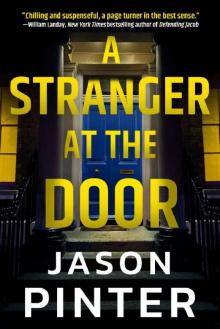 A Stranger at the Door (A Rachel Marin Thriller)
A Stranger at the Door (A Rachel Marin Thriller)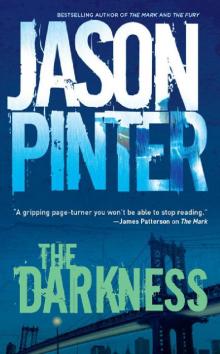 The Darkness hp-5
The Darkness hp-5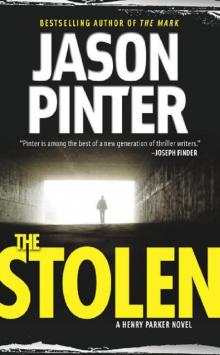 The Stolen hp-3
The Stolen hp-3 The Guilty hp-2
The Guilty hp-2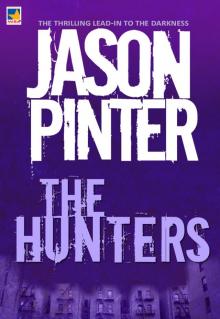 The Hunters
The Hunters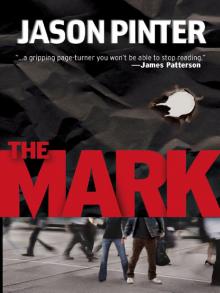 The Mark hp-1
The Mark hp-1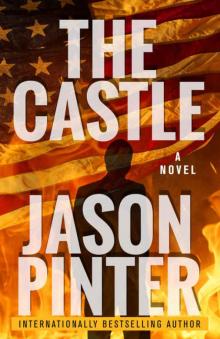 The Castle: A Ripped-From-The-Headlines Thriller
The Castle: A Ripped-From-The-Headlines Thriller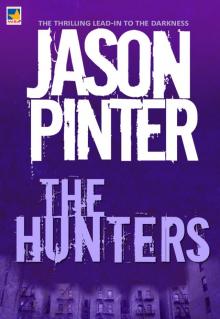 The Hunters (henry parker)
The Hunters (henry parker)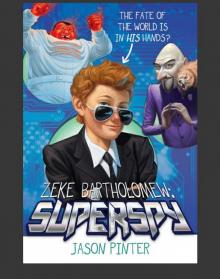 Zeke Bartholomew
Zeke Bartholomew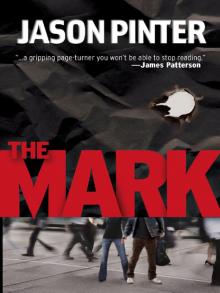 The Mark
The Mark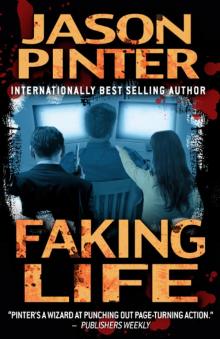 Faking Life
Faking Life![[Henry Parker 01.0] The Mark Read online](http://i1.bookreadfree.com/i2/04/08/henry_parker_01_0_the_mark_preview.jpg) [Henry Parker 01.0] The Mark
[Henry Parker 01.0] The Mark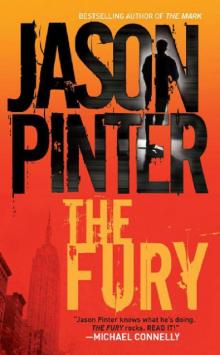 The Fury hp-4
The Fury hp-4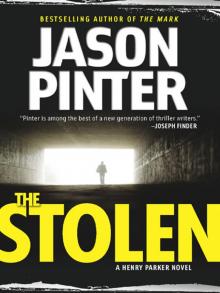 The Stolen
The Stolen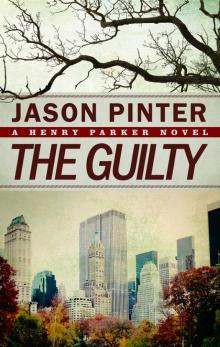 The Guilty
The Guilty